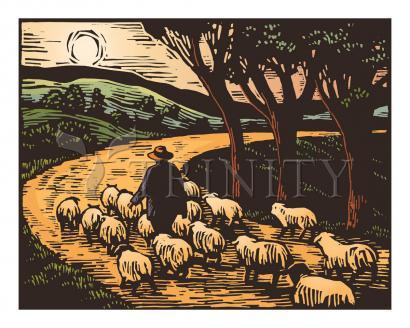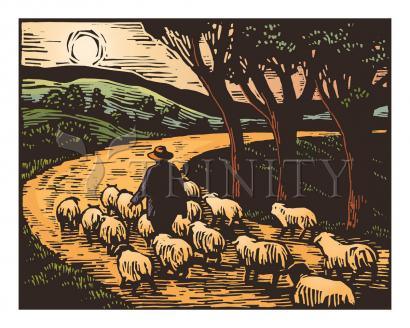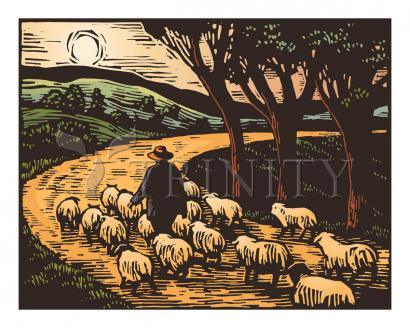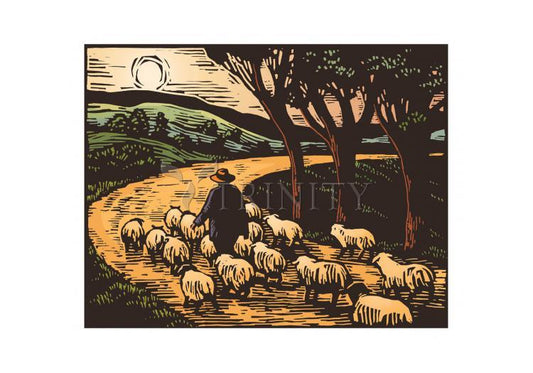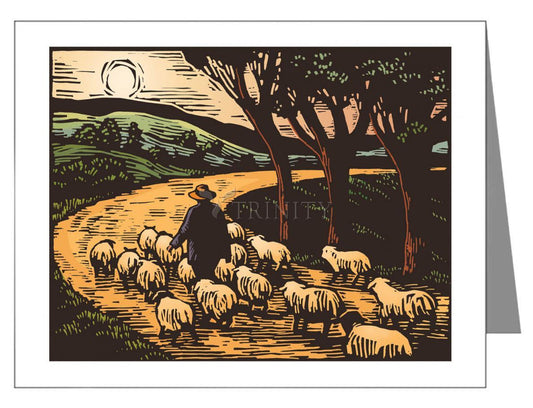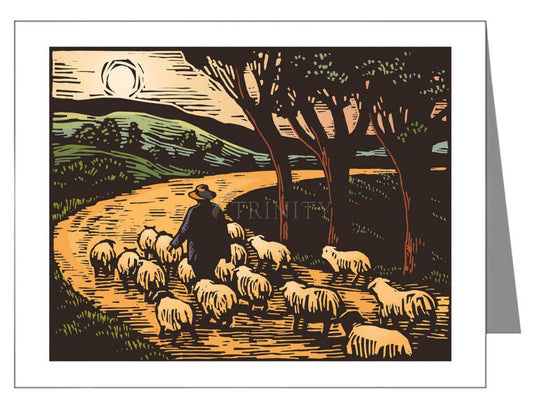Pope Francis called on the world's priests to bring the healing power of God's grace to everyone in need, to stay close to the marginalized and to be "shepherds living with the smell of the sheep."
Those priests "who do not go out of themselves" by being mediators between God and men can "gradually become intermediaries, managers," he said March 28 during the chrism Mass in St. Peter's Basilica.
When a priest "doesn't put his own skin and own heart on the line, he never hears a warm, heartfelt word of thanks" from those he has helped, the pope said in his homily.
"This is precisely the reason why some priests grow dissatisfied, lose heart and become in a sense collectors of antiquities or novelties " instead of being shepherds living with 'the smell of the sheep,'" he said.
"This is what I am asking you," he said with emphasis, looking up from his prepared text, "be shepherds with the smell of sheep," so that people can sense the priest is not just concerned with his own congregation, but is also a fisher of men.
Presiding over the first of two Holy Thursday liturgies, Pope Francis blessed the oils that will be used in the sacraments of baptism, confirmation, ordination and the anointing of the sick.
Deacons carried the sacramental oils in six large silver urns to the main altar to be blessed by the pope in his first chrism Mass as bishop of Rome.
Surrounded by more than 1,600 priests, bishops and cardinals, Pope Francis led them in a renewal in their priestly promises. He focused his homily on the meaning of being "the anointed ones" through ordination, underlining Holy Thursday as the day Jesus shared his priesthood with the apostles.
God anointed his servants so they would be there for others, serving "the poor, prisoners, the sick, for those who are sorrowing and alone," the pope said standing at a lectern.
The precious sacramental oil "is not intended just to make us fragrant, much less to be kept in a jar, for then it would become rancid and the heart bitter," the pope said.
He said a good priest anoints his people "with the oil of gladness," by preaching the Gospel "with unction," that is with the soothing, comforting words of God.
If people leave Mass "looking as if they have heard good news," then the priest has clearly done his job well, the pope said.
"When we have this relationship with God and with his people, and his grace passes through us, then we are priests, mediators between God and men," he said.
The pope urged priests to not grow weary of people's requests and needs no matter how "inconvenient " purely material or downright banal," such appeals may seem. Priests need to look deeper at what's driving the encounter: the person's underlying hope and desire for divine comfort, for being "anointed with fragrant oil, since they know we have it."
"We need to 'go out,' then, in order to experience our own anointing, its power and its redemptive efficacy: to the 'outskirts' where there is suffering, bloodshed, blindness that longs for sight, and prisoners in thrall to many evil masters," the pope said.
Ministers do not encounter God through "soul-searching or constant introspection," he said. Even though "self-help courses can be useful in life," he said, living by them will only lead people to become "pelagians," that is to falsely believe that good will and strenuous effort without divine aid may overcome sin.
The power of grace "comes alive and flourishes to the extent that we, in faith, go out and give ourselves and the Gospel to others, giving what little ointment we have to those who have nothing, nothing at all," he said.
The pope called for resisting the onslaught of the "crisis of priestly identity (which) threatens us all and adds to the broader cultural crisis," and for not giving up casting one's nets in the name of the Lord.
"It is not a bad thing that reality forces us to 'put out into the deep,'" where "the only thing that counts is 'unction,' not 'function,'" he said, where bringing God's healing and comfort to others is the priority.
The pope ended his homily by asking the faithful to "be close to your priests with affection and with your prayers, that they may always be shepherds according to God's heart."
"Excerpts from Vatican City, Catholoic News Service by Carol Glatz









